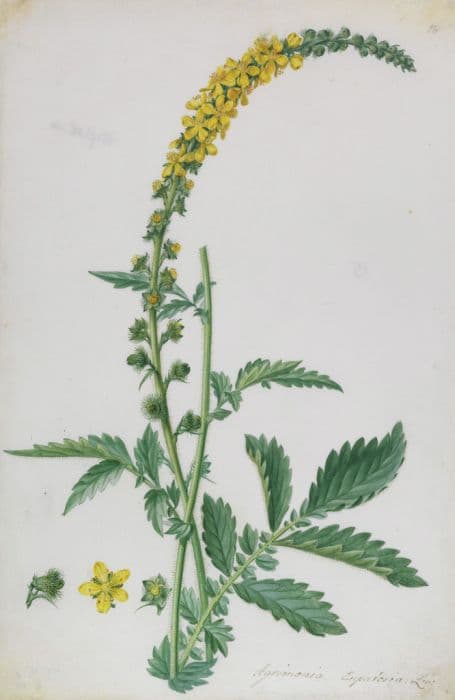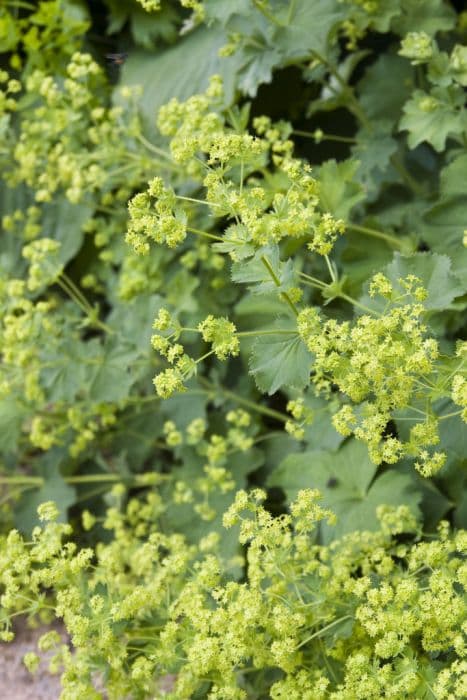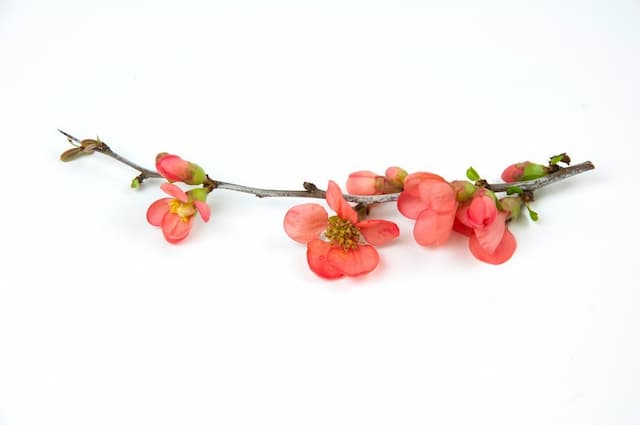Patio Rose Rosa Marry Me = 'Dicwonder' (PBR) (Patio)
![rose [Marry Me]](/_next/image?url=https%3A%2F%2Fplants-admin.emdemapps.com%2Fimages%2Fplants%2F%2Fimages%2F604b535bd76d9.png&w=3840&q=75)
ABOUT
Rosa Marry Me, known as a patio rose, typically features a compact and bushy growth habit which makes it a popular choice for small gardens and container planting. The plant is adorned with semi-double blooms that exhibit a stunning hue, often a blend of pink with hints of cream or pale yellow at the edges, creating a romantic and soft appearance. The petals are usually arranged in a classic, rosette shape, delivering an elegant look that is characteristic of many rose varieties. As the flowers mature, they may open up further to reveal a button eye at the center. The glossy, green foliage provides a lush backdrop for the flowers, accentuating their color and form. This particular rose variety is cherished for its repeat flowering characteristic, meaning it can produce multiple flushes of blooms throughout the growing season, offering a continual display of its charming flowers. The blooms are also known for their delightful fragrance, which can be a subtle yet captivating addition to any garden space or patio arrangement. Rosa Marry Me's overall appearance is one of classic beauty with a delicate and alluring presence, making it a sought-after specimen among gardening enthusiasts and admirers of timeless floral charm.
About this plant
 Names
NamesFamily
Rosaceae
Synonyms
Marry Me Rose, Patio Rose, Dicwonder Rose
Common names
Rosa 'Dicwonder'
 Toxicity
ToxicityTo humans
The common name for Rosa Marry Me = 'Dicwonder' (PBR) (Patio) is simply 'rose'. Roses are not considered toxic to humans. They are commonly grown in gardens and even used in culinary applications; however, their thorns can pose a physical hazard. If ingested, plant parts such as leaves and stems are not likely to cause poisoning, but they may cause discomfort or an upset stomach due to the fibrous plant material.
To pets
The common name for Rosa Marry Me = 'Dicwonder' (PBR) (Patio) is 'rose'. Roses are generally considered non-toxic to pets such as dogs and cats. While ingestion of rose petals, leaves, or stems may lead to mild gastrointestinal upset due to plant material irritation, they are not known to cause serious poisoning. However, thorns can cause injuries such as punctures or scratches, so pets should be kept away from rose bushes to avoid physical harm.
 Characteristics
CharacteristicsLife cycle
Perennials
Foliage type
Deciduous
Color of leaves
Green
Flower color
Pink
Height
2 feet (60 cm)
Spread
2 feet (60 cm)
Plant type
Shrub
Hardiness zones
Varies
Native area
Cultivar
Benefits
 General Benefits
General Benefits- Compact Size: Ideal for small gardens and patios due to its compact growth habit.
- Decorative Blooms: Offers a display of beautifully formed flowers that can enhance the aesthetic appeal of any outdoor space.
- Continuous Flowering: Known for its re-blooming characteristic, providing flowers throughout the growing season.
- Low Maintenance: Requires minimal care beyond basic watering and occasional feeding, making it suitable for beginner gardeners.
- Drought Tolerance: Once established, it has a degree of resistance to drought, reducing the need for frequent watering.
- Cold Hardy: Capable of withstanding cooler temperatures which makes it suitable for a variety of climates.
- Versatility: Can be planted in the ground or in containers, offering flexibility in garden design.
- Pollinator-Friendly: Attracts bees and butterflies, promoting biodiversity and the health of the garden ecosystem.
- Disease Resistance: Bred for resistance to common rose diseases, reducing the need for chemical treatments.
- Long Blooming Period: Provides color and interest in the garden for an extended period compared to some other plants.
 Medical Properties
Medical Properties- This plant is not used for medical purposes.
 Air-purifying Qualities
Air-purifying QualitiesThis plant is not specifically known for air purifying qualities.
 Other Uses
Other Uses- Culinary garnish - The rose petals of the patio rose can be used to add a touch of elegance and a floral note to desserts and salads.
- Natural dye - The petals can be used to create a natural dye for fabrics, offering a range of pink hues.
- Bath soak - Petals from the patio rose can be added to bathwater for a luxurious, fragrant soak that can help soothe the skin.
- Floral water - The petals can be distilled to make rose water, which can then be used as a natural fragrance or linen spray.
- Bookmarks - Dried petals can be laminated and used as delicate bookmarks, retaining the beauty of the flower.
- Floral confetti - Dried petals can serve as biodegradable confetti for weddings or celebrations.
- Art and Craft - Petals can be used in potpourri, or to make floral arrangements and wreaths.
- Photography prop - The roses can be utilized as a subtle and romantic prop in portrait and still-life photography sessions.
- Education - The pruning and care required for this plant can be used as an educational tool for teaching gardening techniques.
- Rose petal tea - Petals can be dried and used to make a fragrant herbal tea.
Interesting Facts
 Feng Shui
Feng ShuiThe rose is not used in Feng Shui practice.
 Zodiac Sign Compitability
Zodiac Sign CompitabilityThe rose is not used in astrology practice.
 Plant Symbolism
Plant Symbolism- Love: As a variety of rose, the 'Dicwonder' embodies love, which is universally recognized as the primary meaning of roses. The romantic undertone of its name, "Marry Me," further emphasizes the association with deep affection and marriage proposals.
- Beauty: Roses are widely considered symbols of beauty due to their elegantly formed petals and overall aesthetic appeal. This particular patio rose with its charming blooms resonates with the traditional representation of elegance and grace.
- Devotion: The durability and repeat flowering of this patio rose suggest devotion and enduring love. Its ability to bloom repeatedly represents the continuous renewal of commitment.
- Purity: The rose is often connected with purity, especially when its blooms are white or light pink, which can be associated with innocence and chastity, making it a popular choice for bridal arrangements.
- Secret or Confidentiality: Historically, roses were used to symbolize secrecy, with the Latin phrase "sub rosa" (under the rose) indicating a confidential conversation. This aspect can add a layer of intimate privacy to the symbolism of the 'Dicwonder' rose.
- Joy: The bright and cheerful colors of patio roses, as well as their inviting fragrance, have long made them symbols of joy and happiness in gardens and various celebrations.
- Friendship: While yellow roses are commonly associated with friendship, patio roses like 'Dicwonder' can also represent camaraderie and support thanks to their inviting and friendly appearance.
 Water
WaterThe patio rose 'Marry Me' requires regular watering to keep its soil moist, especially during hot, dry weather. Generally, watering once a week with about 1 to 2 gallons of water per plant should suffice. However, during periods of extreme heat or drought, it may need watering two to three times a week. Always check the top inch of soil before watering; if it feels dry, it's time to water. Avoid overhead watering to prevent foliar diseases, and instead water at the base of the plant.
 Light
LightRoses, including the patio rose 'Marry Me', thrive in full sun conditions. The ideal location for your rose should receive at least 6 hours of direct sunlight each day. Avoid planting in areas that are shaded for a significant part of the day. Full sunlight encourages strong growth and blooms.
 Temperature
TemperaturePatio roses like 'Marry Me' are hardy and can generally tolerate a range of temperatures, but they prefer a climate with temperatures between 65°F and 75°F. They can survive minimum winter temperatures down to around 20°F but require protection during harsher frosts. Ideally, avoid placing them in locations where temperatures exceed 90°F, as extreme heat can stress the plant.
 Pruning
PruningPruning your patio rose 'Marry Me' is essential to maintain its shape, remove deadwood, and encourage vigorous flowering. Prune in late winter or early spring, before the plant breaks dormancy. Remove any dead or diseased canes, thin out crowded areas to improve air circulation, and shape the plant as desired. Annual pruning also helps to rejuvenate the plant, ensuring strong and healthy blooms for the coming season.
 Cleaning
CleaningAs needed
 Soil
SoilThe best soil mix for the Patio Rose should be well-drained, rich in organic matter, with a pH of 6.0 to 6.5. A mixture of garden soil, compost, and coarse sand in equal parts is ideal. Regular feeding and mulching will benefit plant health.
 Repotting
RepottingPatio Roses like Rosa Marry Me = 'Dicwonder' generally do not require frequent repotting and can be repotted every 2 to 3 years or when they outgrow their current pot, whichever comes first.
 Humidity & Misting
Humidity & MistingPatio Roses do not have specific humidity requirements, but they thrive in conditions that emulate their outdoor environment, which is usually not overly humid.
 Suitable locations
Suitable locationsIndoor
Place in bright spot, water adequately, avoid extreme heat/cold.
Outdoor
Full sun, protect in harsh winters, well-drained soil.
Hardiness zone
5-9 USDA
 Life cycle
Life cycleThe life cycle of the Rosa 'Marry Me' (Dicwonder) (PBR) (Patio) begins with seed germination, where the seeds need to be stratified and then sown in well-draining soil to facilitate the growth of a young plant. Upon sprouting, the seedling will develop true leaves and gradually form a bushy structure through its vegetative growth stage, requiring sunlight, water, and nutrients to thrive. Following this, the plant enters the flowering stage as it matures, typically in its second year, displaying clusters of repeat-blooming, aromatic flowers that range from cream to pink hues. After pollination, which can involve insects or human intervention for cultivated roses, the flower forms rose hips (fruit) containing seeds, ready for dispersal and potential generation of new plants. The Rosa 'Marry Me' is a perennial, and after its blooming season, it will enter a period of dormancy during colder months, only to rejuvenate and repeat the cycle in the following growing season. It's essential to prune the rose during its dormant stage to ensure vigorous growth and abundant flowering in the subsequent cycle.
 Propogation
PropogationPropogation time
Spring-Early Summer
Propogation: Rosa Marry Me 'Dicwonder', a patio rose, is best propagated through softwood cuttings, a method often used during late spring or early summer when new growth is soft and flexible. To propagate by this method, a healthy, non-flowering shoot is selected and a cutting of approximately 4 to 6 inches (about 10 to 15 cm) is made. The lower leaves are removed, and the cut end is often dipped in a rooting hormone to encourage root development. The cutting is then placed in a pot filled with a mix of peat and perlite or sand to provide good drainage and aeration. The pot is kept in a warm, humid environment, covered with a plastic bag or placed in a propagator to maintain high humidity, and within a few weeks, roots should begin to form.









